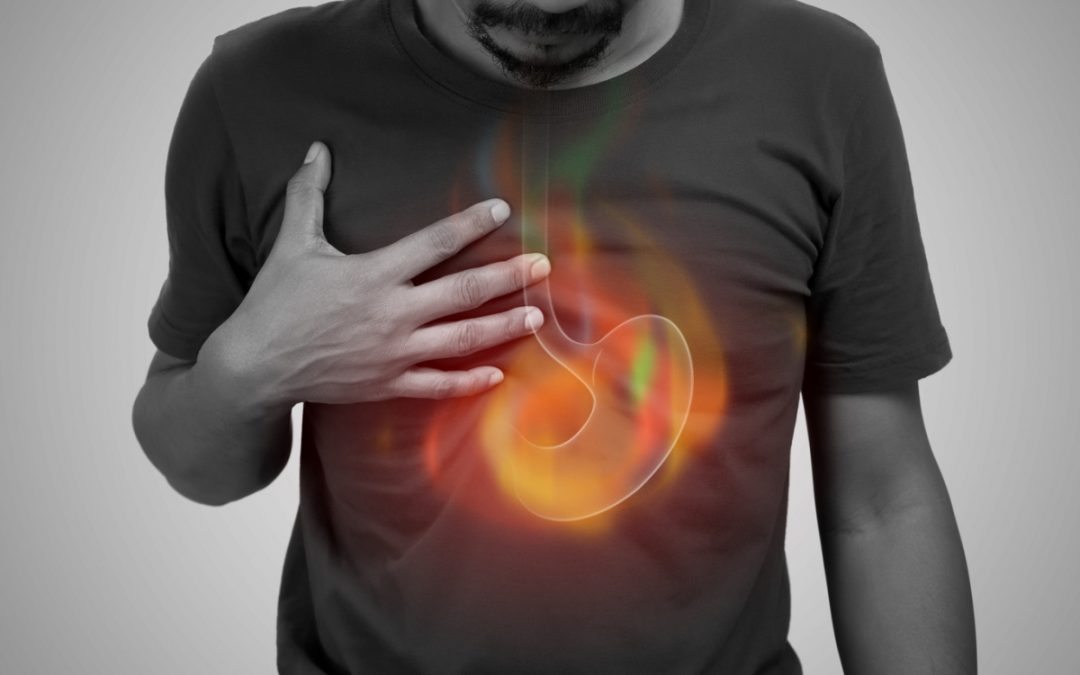Learn about the wide range of GERD symptoms, from heartburn and regurgitation to chest pain and chronic cough. Discover effective management tips for lasting relief.
Introduction
Gastroesophageal reflux disease, commonly known as GERD, is a chronic digestive disorder that affects millions worldwide. At its core, GERD occurs when stomach acid or bile flows back into the esophagus, causing discomfort and inflammation. This can lead to a range of symptoms, some more severe than others. Understanding these symptoms is essential for managing the condition effectively. Moreover, early detection can help prevent long-term complications. GERD symptoms can vary from mild discomfort to severe, life-altering issues, and recognizing the signs is the first step toward better health.
Heartburn: The Classic GERD Symptom
Heartburn is one of the most recognizable GERD symptoms. This burning sensation in the chest, often radiating to the throat, occurs when stomach acid irritates the lining of the esophagus. The discomfort typically worsens after eating, especially when consuming acidic or fatty foods. People with GERD frequently report heartburn after lying down, especially at night, when gravity no longer helps keep stomach acid in place. Persistent heartburn can significantly impact daily life, making it difficult to enjoy meals or even sleep. Addressing heartburn early is crucial to preventing further damage to the esophagus.
Regurgitation: A Common and Troublesome Symptom
Regurgitation, another common GERD symptom, involves the backflow of stomach acid or food into the throat or mouth. This can leave a sour or bitter taste, which is unpleasant and alarming. Many individuals with GERD experience regurgitation after eating large meals or bending over. The sensation of food or liquid traveling upward, coupled with the acidic taste, can interfere with daily activities and sleep. Additionally, frequent regurgitation can lead to bad breath and damage to the teeth, highlighting the need for proper treatment.
Difficulty Swallowing: Dysphagia as a GERD Symptom
Difficulty swallowing, medically known as dysphagia, is another concerning GERD symptom. Over time, the esophagus can become narrow due to repeated exposure to stomach acid, making it hard for food or liquids to pass. This narrowing can cause a sensation of food getting stuck in the throat or chest. Dysphagia is more than just a discomfort; it can lead to poor nutrition and weight loss if left untreated. Identifying and addressing dysphagia is crucial in managing GERD and preventing further complications.
Chest Pain: GERD or Heart Problem?
GERD-related chest pain can be a confusing and alarming symptom. Many people mistake it for heart-related issues because the pain can be sharp and intense. However, GERD chest pain typically differs from heart-related chest pain in that it often occurs after meals and is relieved by antacids. The pain is usually accompanied by other GERD symptoms, such as heartburn and regurgitation. Nevertheless, any unexplained chest pain should always be evaluated by a healthcare professional to rule out serious heart conditions.
Chronic Cough: The Silent GERD Symptom
Chronic cough is a lesser-known GERD symptom but is one that affects many people with the condition. Stomach acid can irritate the throat and airways, leading to persistent coughing, especially at night or after meals. GERD-related cough is often dry and may not produce mucus, which can make it challenging to associate with the digestive system. Addressing GERD as a potential cause of chronic cough can lead to more effective treatment and relief.
Hoarseness: The Impact of GERD on Your Voice
Hoarseness, or a raspy voice, is another GERD symptom that results from acid irritating the vocal cords. Individuals with GERD often notice that their voice becomes hoarse, especially in the morning, after stomach acid has had the chance to flow into the throat overnight. This symptom can be bothersome for those who rely on their voice for work or social interactions. Fortunately, managing GERD can help restore vocal clarity and prevent long-term damage to the vocal cords.
The Feeling of a Lump in the Throat: Globus Sensation
The sensation of having a lump in the throat, known as globus sensation, is a frustrating GERD symptom. It can feel like there is something stuck in the throat, even when there is not. This sensation is often caused by the constant irritation of the esophagus from stomach acid. Although it is not painful, globus sensation can lead to anxiety and discomfort. Understanding that this is a GERD-related symptom can provide peace of mind and guide treatment strategies.

Nausea: An Overlooked GERD Symptom
Nausea, although less common than other GERD symptoms, can still significantly impact individuals suffering from the condition. Some people with GERD report feeling nauseous, particularly in the morning or after large meals. This symptom can be confusing as it is often associated with other digestive issues. However, recognizing nausea as a possible symptom of GERD can help guide treatment and dietary changes to alleviate discomfort.
Vomiting: A Severe GERD Symptom
While rare, vomiting can occur in individuals with GERD, particularly when the regurgitation of stomach contents becomes severe. Vomiting is more common in infants and children with GERD but can also affect adults in extreme cases. Frequent vomiting can lead to dehydration, malnutrition, and damage to the esophagus. If vomiting is a symptom of GERD, it is essential to seek medical attention to prevent further complications.
Bad Breath: The Hidden GERD Symptom
Bad breath, also known as halitosis, is a common yet often overlooked symptom of GERD. The backflow of stomach acid and partially digested food into the mouth can cause an unpleasant odor. This can be embarrassing for individuals with GERD, affecting social interactions and self-esteem. Regular dental hygiene practices may not resolve the issue if GERD is the underlying cause. Managing GERD can improve breath quality and restore confidence.
Erosion of Tooth Enamel: A Sign of Silent GERD
One of the more silent and less obvious GERD symptoms is the erosion of tooth enamel. Over time, stomach acid can wear away at the protective enamel on the teeth, leading to increased sensitivity and cavities. People who experience frequent regurgitation or acid reflux may notice changes in their dental health. This is why it is essential for individuals with GERD to inform their dentist of their condition and take preventive measures to protect their teeth.
Bloating and Gas: Gastrointestinal Discomfort from GERD
Bloating and gas are common symptoms that can accompany GERD, especially after eating large meals or consuming certain trigger foods. The buildup of gas in the stomach can lead to discomfort and a feeling of fullness. Additionally, the trapped gas may cause excessive burping, which can be embarrassing in social situations. Managing diet and portion sizes can help reduce bloating and gas in individuals with GERD.
Hiccups: An Unexpected GERD Symptom
Hiccups, though usually harmless and temporary, can become a frequent and annoying symptom of GERD. The irritation of the esophagus and diaphragm by stomach acid can trigger involuntary contractions, leading to hiccups. While this symptom may seem minor, frequent hiccups can be a sign that GERD is not well controlled. Identifying the connection between hiccups and GERD can lead to better symptom management.
Excessive Salivation: A Body’s Response to GERD
Excessive salivation, or water brash, is a lesser-known GERD symptom where the body produces more saliva in response to acid reflux. This is the body’s natural defense mechanism to neutralize stomach acid. However, excessive salivation can be uncomfortable and embarrassing, particularly in social situations. Understanding that water brash is a GERD-related symptom can help individuals seek appropriate treatment and manage their condition more effectively.
Nighttime GERD Symptoms: Impact on Sleep
Many individuals with GERD report that their symptoms worsen at night, disrupting their sleep. Lying down allows stomach acid to flow more easily into the esophagus, leading to heartburn, regurgitation, and coughing during the night. This can lead to poor sleep quality and daytime fatigue. Elevating the head of the bed and avoiding large meals before bedtime are common strategies to reduce nighttime GERD symptoms and improve sleep.
GERD and Asthma: A Connection Between Symptoms
There is a significant connection between GERD and asthma, as acid reflux can trigger asthma symptoms or make existing asthma worse. Stomach acid can irritate the airways, leading to coughing, wheezing, and shortness of breath. For individuals with both GERD and asthma, managing GERD can lead to improved respiratory health and fewer asthma flare-ups. Recognizing this link can help guide treatment and improve overall quality of life.
GERD and Stress: How Emotions Can Affect Symptoms
Stress is known to exacerbate many medical conditions, including GERD. When stressed, the body produces hormones that can increase stomach acid production and weaken the lower esophageal sphincter, leading to more frequent acid reflux. Stress management techniques, such as mindfulness and relaxation exercises, can help reduce GERD symptoms and improve overall well-being. Understanding the connection between stress and GERD is essential for comprehensive symptom management.
Foods That Trigger GERD Symptoms
Certain foods are known to trigger or worsen GERD symptoms. Spicy foods, fatty meals, chocolate, caffeine, and citrus fruits are among the most common culprits. Recognizing and avoiding these trigger foods can significantly reduce the frequency and severity of GERD symptoms. Keeping a food diary can help individuals identify their specific triggers and make informed dietary choices that support their digestive health.

When to See a Doctor for GERD Symptoms
While many people manage GERD symptoms with lifestyle changes and over-the-counter medications, it is important to seek medical attention if symptoms persist or worsen. Chronic GERD can lead to serious complications, such as esophageal inflammation, Barrett’s esophagus, or even esophageal cancer. Early intervention can prevent these outcomes and improve quality of life. If symptoms like difficulty swallowing, chest pain, or unintended weight loss occur, consulting a healthcare provider is crucial.
Conclusion
GERD symptoms can range from mild to severe, but with proper management, individuals can reduce their discomfort and prevent long-term complications. Understanding the range of symptoms, from heartburn to regurgitation and beyond, is the first step in taking control of your digestive health. By making lifestyle changes, avoiding trigger foods, and seeking medical care when needed, those with GERD can lead a more comfortable and symptom-free life.
Read also: Sciatica Self-Care Relieve Pain and Regain Mobility





